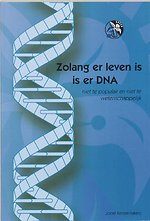1 Kronecker, the semi-intuitionists, Poincaré.- 1.1 Introduction.- 1.1.1 Mathematical prerequisites.- 1.2 Kronecker.- 1.2.1 Kronecker’s conflicts.- 1.2.2 Kronecker’s views.- 1.3 The French semi-intuitionists.- 1.3.1 The French semi-intuitionists’ main conflict.- 1.3.2 The French semi-intuitionists’ views.- 1.4 Poincaré.- 1.4.1 Poincaré’s conflicts.- 1.4.2 Poincaré’s views.- 1.5 Conclusion.- 2 The genesis of Brouwer’s intuitionism.- 2.1 Introduction.- 2.2 The early years.- 2.2.1 Brouwer’s youth.- 2.2.2 Brouwer’s profession of faith.- 2.2.3 Mannoury.- 2.2.4 Brouwer’s mysticism.- 2.3 The first act of intuitionism.- 2.3.1 Brouwer’s dissertation.- 2.3.2 The unreliability of the logical principles.- 2.4 Topology.- 2.5 Intuitionism and formalism.- 2.6 The second act of intuitionism.- 2.6.1 Intuitionistic set theory.- 2.6.2 Further development of intuitionistic mathematics.- 2.7 The Brouwer lectures.- 2.7.1 Berlin.- 2.7.2 Amsterdam.- 2.7.3 Vienna.- 2.8 The Mathematische Annalen and afterwards.- 2.9 Brouwer’s personality.- 2.10 Conclusion.- 3 Overview of the foundational debate.- 3.1 Introduction.- 3.2 Quantitative inquiry.- 3.2.1 The Fortschritte.- 3.2.2 ‘All’ public reactions to intuitionism.- 3.3 Qualitative inquiry.- 3.3.1 Themes.- 3.3.2 Tone.- 3.3.3 Currents and schools.- 3.3.4 People.- 3.3.5 Languages and media.- 3.4 Conclusion.- 4 Reactions: existence and constructivity.- 4.1 Introduction.- 4.1.1 Mathematical existence.- 4.1.2 A short history of constructivism.- 4.2 The beginning of the debate.- 4.2.1 Weyl’s Grundlagenkrise.- 4.2.2 Hilbert’s first reactions.- 4.2.3 Becker’s phenomenology.- 4.2.4 Fraenkel’s early commentaries.- 4.2.5 Baldus’ rector’s address.- 4.3 The debate widened.- 4.3.1 Existence in a central position.- 4.3.2 Existence as a minor subject.- 4.4 Later reactions.- 4.4.1 The Königsberg conference.- 4.4.2 Wittgenstein.- 4.4.3 Others.- 4.5 Conclusion.- 5 Reactions: logic and the excluded middle.- 5.1 Introduction.- 5.1.1 A short history of classical logic.- 5.2 The beginning of the debate.- 5.2.1 Weyl’s Grundlagenkrise.- 5.2.2 Hilbert’s first reactions.- 5.2.3 Addresses: Wolff, Finsler and Baldus.- 5.2.4 Fraenkel’s early commentaries.- 5.3 The debate widened.- 5.3.1 The excluded middle in a central position.- 5.3.2 The excluded middle as a minor subject.- 5.4 Later reactions.- 5.4.1 Glivenko, Heyting and Kolmogorov.- 5.4.2 Gödel.- 5.4.3 Barzin and Errera.- 5.5 Conclusion.- 6 The foundational crisis in its context.- 6.1 Introduction.- 6.2 Metaphors.- 6.2.1 Crisis and revolution.- 6.3 Philosophy.- 6.3.1 Lebensphilosophie.- 6.3.2 Mathematical and philosophical intuitionism: a comparison.- 6.3.3 Contemporaries’ remarks.- 6.3.4 Göttingen and Hilbert.- 6.3.5 Spengler.- 6.3.6 Summary.- 6.4 Physics.- 6.4.1 Theory of relativity.- 6.4.2 Quantum mechanics.- 6.5 Art.- 6.5.1 Constructivism.- 6.6 Politics.- 6.6.1 Mathematics and the rise of the Third Reich.- 6.6.2 Bieberbach’s racial interpretation of the foundational debate.- 6.7 Moderne and Gegenmoderne.- 6.8 Conclusion.- Conclusion.- A Chronology of the debate.- B Public reactions to Brouwer’s intuitionism.- C Logical notations.- Dankwoord/ Acknowledgements.









